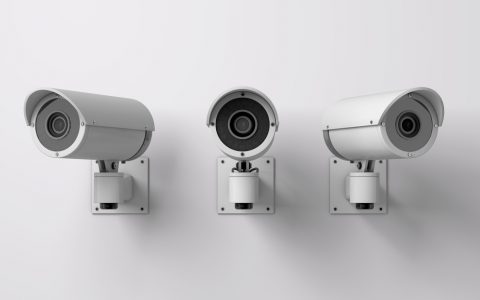There is a lot of debate about whether wired or wireless CCTV cameras are better for protecting your assets. But the bottom line is that these cameras are still the best option in most cases. Here’s why:
How wired equipments are the best option for protecting your assets?
A wired system is a great way to keep an eye on your home or office when you’re not there. By installing a wired system, you can rest assured that your property is being monitored at all times.
They are more reliable than wireless cameras, and they provide a higher quality image. Additionally, they are less likely to be hacked than wireless cameras.
If you’re looking for a security solution that provides peace of mind, wired systems are the best option.
The Benefits of Having Wired CCTV Cameras in Your Home or Office
Some of the most important benefits include:
- Increased security
Wired CCTV cameras can help to increase the security of your home or office. By monitoring the area around your property, you can help to deter criminals and keep your belongings safe.
- Enhanced monitoring capabilities
Wired CCTV cameras offer enhanced monitoring capabilities as they are not susceptible to interference from other electronic devices. This means that you can have a clearer view of what is happening in your property at all times.
- Reduced costs
A wired system can be more affordable than a wireless system in the long run. This is because there are no additional costs associated with setting up and maintaining a wireless system.
The different types of wired cameras available on the market today
Analog Cameras
An analog CCTV system consists of a digital video recorder (DVR) and a number of cameras. The DVR is usually connected to the cameras by coax wire. The signal from the cameras is converted to a digital format and then stored on the DVR. The DVR can then be used to view the footage or to export it for further analysis.
IP Cameras
An IP camera system sends a signal to a Network Video Recorder (NVR) through a Cat5 cable. This cable is similar to the internet signal and can carry both data and power (PoE). This means that the camera can be plugged directly into the NVR and doesn’t require an additional power supply. The NVR can then store the footage from the cameras and allow it to be viewed remotely.
Drawbacks of Wi-Fi cameras
Wi-Fi cameras are increasingly becoming popular due to their convenience and portability. However, there are several drawbacks to using these cameras.
First, Wi-Fi cameras rely on a signal in order to transmit footage. If the signal is weak or interrupted, the camera may not be able to record footage properly. This can be a particular issue if the camera is located in a remote area or if there are numerous electronic devices nearby that can interfere with the signal.
Second, Wi-Fi cameras are vulnerable to hacking. If the camera is connected to the internet, it can be accessed by anyone who knows the right username and password. This could potentially allow someone to spy on you or steal your personal information.
Finally, Wi-Fi cameras can be expensive compared to traditional security cameras that use wires. This may be a consideration if you are on a tight budget.










